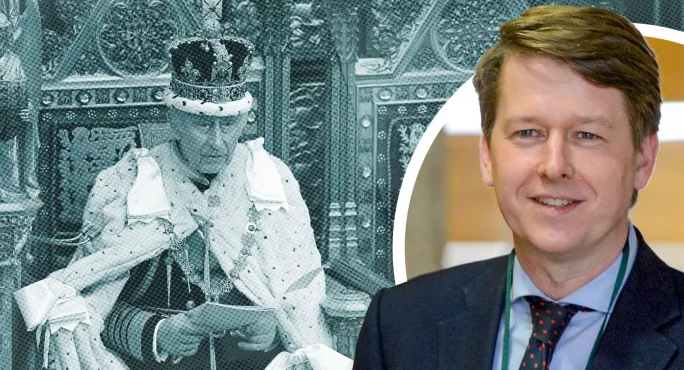Not-in-school register omitted from King’s Speech

The chair of the Commons Education Select Committee has voiced disappointment that the government did not include a plan to create a statutory register of children not in school in today’s King’s Speech.
The committee had called for such a register to be up and running by next year and for the government to include it in today’s announcement on new legislation.
But despite ministers insisting that the government remains committed to creating the register, there was no mention of it in the King’s Speech today.
Reacting to this on Twitter, Robin Walker (pictured), a former schools minister who now chairs the committee, said: “Whilst it’s welcome to see focus on education, skills and apprenticeships in today’s Kings Speech, I’m disappointed not to see action on a statutory register of children not in school, a long-standing recommendation of the @CommonsEd. Hope ministers get behind a [private member’s bill] to deliver this.”
- School attendance: Sharp rise in severe pupil absence and unauthorised holiday
- Absence crisis: MPs call for “major” mental health plan
- Attendance: What’s gone wrong and how can we fix it?
Flick Drummond, a fellow Conservative MP who is also a member of the committee, put forward a private member’s bill for a not-in-school register earlier this year. It had its first reading in May and is awaiting a second reading.
The government had planned to legislate to create a register in the Schools Bill before the bill was ditched last year.
Attendance: Call for not-in-school register
Earlier this year MPs on the committee called for the government to introduce such a register by 2024-25 in a report making recommendations for tackling the absence crisis in schools, after its inquiry into persistent absence
During 2021-22, 22.5 per cent of pupils were classed as persistently absent, which was nearly double the proportion before the pandemic, according to a report from the committee.
Education was mentioned in today’s King’s Speech, although no bills focused on schools were put forward.
Speaking to MPs, King Charles said: “Steps will be taken to ensure young people have the knowledge and skills to succeed, through the introduction of the Advanced British Standard that will bring technical and academic routes into a single qualification.”
The Advanced British Standard (ABS) was announced by the prime minister at the Conservative Party conference last month. It is expected to be a long-term reform that would result in A levels and T levels being brought under one qualification, but it will not be delivered before the next election.
Union leaders have questioned the government’s decision to focus on this in the King’s Speech today.
“It is not the right priority at a time when the education profession is under so much pressure,” said Geoff Barton, general secretary of the Association of School and College Leaders (ASCL).
“There remains no urgency to solve teacher shortages and funding shortfalls that are already impacting schools and colleges and call into question the viability of extending teaching in the way the Advanced British Standard would require.”
He added: “Today demonstrates the chasm between the government’s rhetoric about education being a silver bullet and what they are practically prepared to do to support the profession. This is not the agenda of a government that is putting children and young people first.”
Daniel Kebede, general secretary of the NEU teaching union, said: “There was no hint today of a long-term strategy that would get to grips with the challenges facing education. It can only be hoped that the Autumn Statement injects a considerable amount of new money into the sector.
“Without sufficient teachers to teach, the prime minister’s ambition for a new Advanced British Standard will not be met. There are simply not enough English and maths teachers to educate 11- to 16-year-olds, let alone A-level students.”
A DfE spokesperson said education is a “top priority” for the government, and that £600 million had already been committed to lay the groundwork for the ABS.
“Every child, wherever they are taught, deserves the best possible education. We continue to work with local authorities on their existing non-statutory registers of children not in school, and remain committed to legislating for statutory registers,” the spokesperson added.
You need a Tes subscription to read this article
Subscribe now to read this article and get other subscriber-only content:
- Unlimited access to all Tes magazine content
- Exclusive subscriber-only stories
- Award-winning email newsletters
Already a subscriber? Log in
You need a subscription to read this article
Subscribe now to read this article and get other subscriber-only content, including:
- Unlimited access to all Tes magazine content
- Exclusive subscriber-only stories
- Award-winning email newsletters
topics in this article



